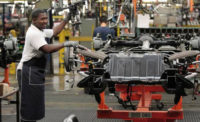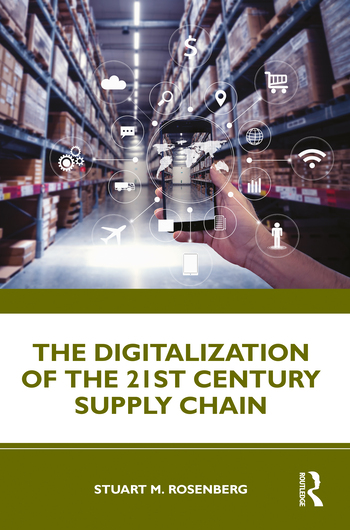Logistics and supply chain management is more important to manufacturers than ever. Supplier collaboration, speed and agility are essential today. However, forecasting demand, managing raw materials, procuring parts, tracking work-in-process inventory and shipping finished goods to customers can be a daunting task.
The Center for Supply Chain Research (CSCR) at Pennsylvania State University thrives on tackling those increasingly complex challenges. With 38 faculty members and more than 1,000 student majors, Penn State boasts one of the largest academic concentrations of supply chain education and research in the United States.
“Our mission is to offer the supply chain profession the best in benchmarking, education programs, research, symposia and workshops,” says Steve Tracey, CSCR executive director. “It is also to support the Smeal College of Business in achieving research and education excellence in supply chain and information systems.”
Although the 27-year-old organization is still firmly rooted in traditional aspects of distribution, procurement and transportation, research efforts also focus on newer topics such as demand-driven supply networks, human behavior modeling and low-cost country sourcing.
One of Tracey’s colleagues recently published a research study on the role of maintenance and repair operations in automated distribution centers. Other colleagues are working with pharmaceutical companies on the newly enacted Drug Supply Chain Security Act. They’re examining the best way to use technology to track products on their journey from plant floor to store shelf.
Last year, CSCR was involved in 60 research projects involving more than 100 Penn State students. Many of those efforts addressed hot buttons in the supply chain business, such as analytics, risk management, security, sustainability and talent development.
“Supply chains are interconnected today, so data analytics and cybersecurity are critically important,” explains Tracey. “Many companies are also trying to figure out how to have a sustainable supply chain strategy. In addition, omnichannel execution has become increasingly important because of the advent of e-commerce.”
The CSCR sponsors an on-campus career fair twice a year. It attracts many leaders in the supply chain industry, including consumer goods companies such as Procter & Gamble and Unilever; high-tech firms like Dell and IBM; manufacturers such as Danaher and Rockwell Automation; professional service firms like Deloitte and EY; retailers such as Amazon and Walmart; and third-party logistics providers like FedEx and UPS.
“Our students get jobs all over the United States and throughout the world,” claims Tracey. “More than 90 percent of our most recent senior class also participated in at least one co-op or internship program. Many companies use them as recruiting tools and as a way to evaluate prospective employees.”
In addition, Penn State students often visit local distribution centers operated by companies such as REI, Target and Wegmans. That allows them to see state-of-the-art facilities up close.
Besides educating future generations of supply chain professionals, the CSCR offers a large portfolio of campus-based continuing education programs. Every year, it sponsors several symposiums that focus on a variety of hot topics in supply chain management. The next event, on Oct. 12-13, will address supplier innovation.
“We try to bring in speakers from both academia and the supply chain profession,” says Tracey. “We also participate in many trades shows and conferences around the country, in addition to organizing podcasts and webinars.”
Twice a year, CSCR sponsors an invitation-only, issues discussion program called the Supply Chain Leaders Forum.
“The program is intended for mid- to senior-level supply chain executives,” notes Tracey. “Its purpose is to foster peer-to-peer discussions of current issues and to seek commonalities in business practice.”
The organization also features a powerful lineup of more than 50 corporate sponsors, including blue-chip manufacturers such as Boeing, General Electric, Johnson & Johnson and Lockheed Martin. The sponsors gain exclusive access to CSCR research and can participate in workshops on various topics, such as how to hire, train and retain talent.









